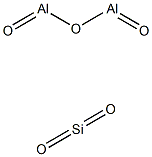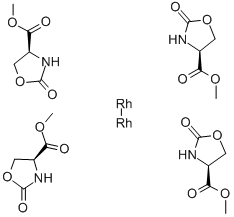Zeolite
Synonym(s):Molecular sieve 0.4 nm;Molecular sieve 0.5 nm;Molecular sieve 1.0 nm;SGK;Sodium aluminium silicate
- CAS NO.:1318-02-1
- Empirical Formula: Al2O5Si
- Molecular Weight: 162.045576
- MDL number: MFCD00132601
- EINECS: 930-915-9
- SAFETY DATA SHEET (SDS)
- Update Date: 2024-12-18 14:08:57

What is Zeolite?
Occurrence
Aluminosilicates are obtained directly from the aluminosilicate rocks or as synthetic materials. These oxides have the general formula: mAl2O3 . nSiO, e.g., andalusite, sillimanite, disthene, kaolinite, topaz, and mullite. Natural aluminosilicate powders used in investment casting are supplied with various Al2O3 content, such as 42–47% (e.g., Molochite) and 60% (e.g., Remasil, Mulgrain), and with gradation in the range of 325# 120#. The higher the content of Al2O3 in the powder, the higher its resistance to temperature. Most common contaminants in aluminosilicate powder are: Fe2O3, TiO2, and ZrO2, while the content of CaO, MgO, K2O, P2O5, and Cr2O3 is very small. An important advantage of aluminosilicate powders is their availability and low price of about 0.5 €/kg.
Mullite 3Al2O3 . 2SiO2 is a mineral that is rarely found in nature (known deposits on the Isle of Mull, Scotland). For industrial purposes, synthetic mullite is used almost exclusively (sintered or melted) with particle sizes up to: 0.07, 0.12, 0.25–0.5, 0.5–1.0 mm and of white color. The raw material is milled and fractionated for a suitable grain size matrix of the ceramic powders and stucco. The melting point of mullite is 1810 ℃ and density is 3.05 g/cm3, which does not depend on the temperature. It is characterized by high resistance to creep and thermal shock due to a low coefficient of thermal expansion and a low thermal conductivity. Synthetic mullite is characterized by a high chemical purity—total content of impurities does not exceed 0.5 wt%. The price is high (about 2.5 V/kg), thus it is used for ceramic molds for casting turbine blades with a DS or SC microstructure.
The Uses of Zeolite
Zeolite is used in formation of Silicates.
The Uses of Zeolite
Catalyst in refining petroleum, to soften water, and in detergents. The sodium compound, Na 12 [(Al O 2 ) 12 (Si O 2 ) 12 ] x H 2 O, is typical.
The Uses of Zeolite
Unique physical properties such as high surface area and ordered pore structure make mesoporous silica useful for diverse applications extending from CO2 sequestration to catalysis and heavy metal removal from waste streams. Our pelletized mesoporous materials are easy to handle and suitable for aforementioned applications especially in column format which is often required during continuous processing.
Definition
A natural hydrated silicate of aluminum and either sodium or calcium or both, of the type Na2O?Al2O3?xSiO2?xH2O. Both natural and artificial zeolites are used extensively for water softening, as detergent builders, and cracking catalysts. For the former purpose the sodium or potassium compounds are required, since their usefulness depends on the cationic exchange of the sodium of the zeolite for the calcium or magnesium of hard water. When the zeolite has become saturated with calcium or magnesium ion it is flooded with strong salt solution, a reverse exchange of cations takes place and the material is regenerated. The natural zeolites are analcite, chabazite, heulandite, natrolite, stilbite, and thomsonite. Synthetic zeolites are made either by a gel process (sodium silicate and alumina) or by a clay process (kaolin), which forms a matrix to which the zeolite is added. These processes are quite complex, involving substitution of various rare-earth oxides. The effectiveness of zeolites depends on their pore size, which may be as small as 4–5 A? . Other applications of zeolites are as adsorbents, desiccants, and in solar collectors, where they function as both heating and cooling agent.
Definition
A member of a group of hydrated aluminosilicate minerals, which occur in nature and are also manufactured for their ion-exchange and selective-absorption properties. They are used for water softening and for sugar refining. The zeolites have an open crystal structure and can be used as MOLECULAR SIEVES.
Definition
zeolite: A natural or synthetic hydratedaluminosilicate with an openthree-dimensional crystal structure,in which water molecules are held incavities in the lattice. The water canbe driven off by heating and the zeolitecan then absorb other moleculesof suitable size. Zeolites are used forseparating mixtures by selective absorption– for this reason they areoften called molecular sieves. Theyare also used in sorption pumps forvacuum systems and certain types(e.g. Permutit) are used in ionexchange(e.g. water-softening).
Preparation
Zeolite family is a well-known class of alkali aluminosilicates found in nature that has been used as ion exchange minerals in water softening.They are hydrated systems and give up part of their water molecules quite readily at modest temperatures but reabsorb the moisture when exposed to moist air. A similar alkali aluminosilicate is prepared artificially and has the empirical composition 2M2O·Al203·3SiO2·3H20; these compositions are called "permutites" and are usually prepared with sodium as the alkali metal by adding aluminum sulphate to soluble silicate solutions or by combining sodium aluminate with sodium silicate. In the presence of calcium, iron and other cations, the sodium ion is displaced by the heavier metal ions and the permutites can thus be used to remove these metal ions from solution—for example, to remove hardness from hard water, or to "soften" water. The permutite or artificial zeolite can be regenerated by treating with strong sodium chloride solution, thus replacing the calcium or iron by sodium. More recently, the use of synthetic zeolites as "molecular sieves" has become quite important in the separation of organic compounds or as catalysts in petroleum refining. In these alkali aluminosilicates, the pore size is determined by the alkali metal cation used.
General Description
Aluminosilicate, mesostructured (Al-MSU) is an analog of hexagonal MCM-41 that can be assembled by zeolite seeds. It is hydrothermally stable and strongly acidic, which makes it useful in catalysis and adsorption technology.
Flammability and Explosibility
Not classified
Agricultural Uses
Zeolite is a generic term used for any of the large group of
minerals, comprising hydrated aluminosilicates of Na,
K, Ca and Ba. These can readily be dehydrated and rehydrated,
and find application as molecular sieves and
cation exchangers.
Natural zeolites are analcite, chabazite, heulandite,
natrolite, stilbite and thomsonite. Artificial zeolites are
made in many forms (ranging from gelatinous, to porous,
to sand like varieties) and are used as gas absorbents,
drying agents, catalysts and water softeners. Zeolites
include a diverse group of compounds of sulphonated
organic or basic resins.
Zeolites are low-temperature and low-pressure
minerals occurring commonly in basalts, denitrification
products and as alteration products of feldspars and
nepheline.
Zeolites are also present in volcanic ash clay
minerals. When applied to land or similar fields, they
have a strong capacity for holding ammonium ions which
reduce the leaching of the nitrate ions.
Zeolites are called molecular sieves because of their
use in separating mixtures by selective absorption. They
are also used in sorption pumps for vacuum systems
(e.g., In permutil), ion exchange systems (for water
softening) and as catalysts.
Properties of Zeolite
| Melting point: | >1600°C |
| Density | 1.9~2.3g/cm3 |
| storage temp. | no restrictions. |
| form | powder |
| pka | 10.348[at 20 ℃] |
| color | White |
| Odor | wh., odorless powd. |
| PH | 8-11 (H2O) |
| Water Solubility | Insoluble in water. |
| Sensitive | Hygroscopic |
| Exposure limits | ACGIH: TWA 10 mg/m3 OSHA: TWA 15 mg/m3 NIOSH: IDLH 5000 mg/m3; TWA 2.4 mg/m3; TWA 0.3 mg/m3 |
| IARC | 3 (Vol. 68) 1997 |
| EPA Substance Registry System | Zeolites (1318-02-1) |
Safety information for Zeolite
Computed Descriptors for Zeolite
Zeolite manufacturer
Ralington Pharma
ARRAKIS INDUSTRIES LLP
New Products
(S)-3-Aminobutanenitrile hydrochloride 4-Methylphenylacetic acid N-Boc-D-alaninol N-BOC-D/L-ALANINOL Tert-butyl bis(2-chloroethyl)carbamate 3-Morpholino-1-(4-nitrophenyl)-5,6-dihydropyridin- 2(1H)-one Furan-2,5-Dicarboxylic Acid Tropic acid 1-Bromo-3,5-Di-Tert-Butylbenzene S-2-CHLORO PROPIONIC ACID ETHYL ISOCYANOACETATE 2-Bromo-1,3-Bis(Dimethylamino)Trimethinium Hexafluorophosphate 4-IODO BENZOIC ACID 3-NITRO-2-METHYL ANILINE 1-(2,4-DICHLOROPHENYL) ETHANAMINE (2-Hydroxyphenyl)acetonitrile 4-Bromopyrazole 2-(Cyanocyclohexyl)acetic acid 4-methoxy-3,5-dinitropyridine 1-(4-(aminomethyl)benzyl)urea hydrochloride 2-aminopropyl benzoate hydrochloride diethyl 2-(2-((tertbutoxycarbonyl)amino) ethyl)malonate tert-butyl 4- (ureidomethyl)benzylcarbamate Ethyl-2-chloro((4-methoxyphenyl)hydrazono)acetateRelated products of tetrahydrofuran








You may like
-
 Molecular Sieves 99%View Details
Molecular Sieves 99%View Details -
 Zeolite 98%View Details
Zeolite 98%View Details -
 Zeolite beta CAS 1318-02-1View Details
Zeolite beta CAS 1318-02-1View Details
1318-02-1 -
 Zeolite beta, ammonium CAS 1318-02-1View Details
Zeolite beta, ammonium CAS 1318-02-1View Details
1318-02-1 -
 Zeolite beta, hydrogen CAS 1318-02-1View Details
Zeolite beta, hydrogen CAS 1318-02-1View Details
1318-02-1 -
 12003-51-9 / 54390-85-1 Sodium aluminium silicate 98%View Details
12003-51-9 / 54390-85-1 Sodium aluminium silicate 98%View Details
12003-51-9 / 54390-85-1 -
 Zeolite ferrierite, ammonium CAS 1318-02-1View Details
Zeolite ferrierite, ammonium CAS 1318-02-1View Details
1318-02-1 -
 Molecular sieve 0.4 nm CASView Details
Molecular sieve 0.4 nm CASView Details